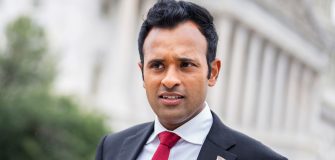Trust in higher education is plummeting for good reason
Share
Gallup found that confidence in education has dropped to 36%. This is a steep drop in confidence, as it was 48% in 2018 and 57% back in 2015. The proportion of people who said they have “very little” confidence in higher education has more than doubled since 2015 to 22%. The reduction was observed in every single demographic polled, but it was especially pronounced among Republicans (down 37 points since 2015), those with no college degree (down 26 points since 2015), and women (down 22 points since 2015).
There are good explanations for this. For starters, inflation-adjusted tuition has risen by 169% since 1980, while college-educated young people’s earnings have only gone up 19%. But this cannot be the whole story.
The Foundation for Individual Rights and Expression points out that institutions are “defined by a distinctive mission that serves to justify the rights and privileges society affords it.” But when an institution abandons its mission, the trust the public has put into it begins to fade.
In the case of the university, its mission, and therefore responsibility, is to pursue truth. Over the past decade, it has wholly abdicated that responsibility.
CEO of FIRE and co-author of Coddling of the American Mind, Greg Lukianoff, explained that “if even a single expert loses their career for having ‘the wrong’ opinion trust in experts plummets. When people see this happen repeatedly in already extremely politically homogenous institutions the destruction of trust is perfectly predictable &, indeed, rational.”
It is from the universities that the severe narrowing of the Overton window, or what is colloquially referred to as cancel culture, originated, where extreme political correctness took hold, where compelled speech in the form of DEI statements became normalized, and where freedom of thought was replaced with conformity of thought. Heterodox professors have been intimidated into leaving, denied employment due to protests, and had their papers retracted. Giving into the demands of angry activists has become the forte of administrators. To see universities descend into the debased institutions they have become, too often beholden to consensus and liberal pieties, is a real issue and likely the root of declining trust. I don’t know why exactly universities went in this direction. But it is clear that they have.
On one hand, it is a tragedy. The university is a necessary institution with a proud history that has facilitated the vigorous pursuit of truth for hundreds of years. On the other hand, the only way for the actual condition of universities to improve is if they are given reason to engage in introspection. Rapidly falling trust certainly provides an impetus for such introspection.
In the meantime, conservatives ought to remain invested in these institutions as a way of 1) benefiting from their continued influence and 2) working from the inside to change them and, by extension, the broader culture. The odds of this succeeding are long, which is why building alternatives is a good thing — as is working to normalize that not everyone must attend a four-year college.
But at least trying to restore what has been lost in all of our institutions, not just universities, is well worth the fight.
Continue Reading at The Washington Examiner.













